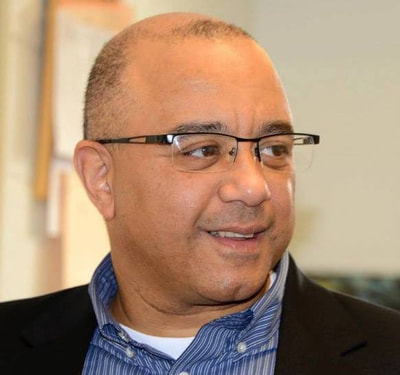|
Jerry Wemple, a professor of English at Bloomsburg University of Pennsylvania, was a writer-in-residence at Chincoteague Bay Field Station for three weeks during summer 2018. Wemple, a poet and nonfiction writer, worked on a series of poems from his current project, a follow-up to his recent narrative sequence The Artemas Poems. Both projects look at small town life and the social history of a region from the 1950s on. “I really appreciated the time and space the CBFS residency provided,” Wemple said. “I got a lot of work done while I was there. The change of scene got me out of my day-to-day and allowed me to focus on writing.” Wemple also said the field station staff was friendly and he got to tag along on a couple of field trips, taking advantage of the great location. A Pennsylvania native, Jerry Wemple writes frequently about the people and places of the Susquehanna Valley region. His work includes three poetry collections: You Can See It from Here, selected by Pulitzer Prize-winner Yusef Komunyakaa for the Naomi Long Madgett Poetry Award, The Civil War in Baltimore, and most recently The Artemas Poems. He is co-editor of the anthology Common Wealth: Contemporary Poets on Pennsylvania. His poetry and creative nonfiction work appear in numerous journals and anthologies, and have been published internationally in Ireland, Chile, Spain, Germany, and Canada. Wemple is the recipient of several awards for writing and teaching including a Fellowship in Literature from the Pennsylvania Council on the Arts and the Word Journal chapbook prize. He received the Dean’s Salute to Excellence for his teaching and scholarship at Bloomsburg, the Bloomsburg University Institute for Culture and Society award for Outstanding Creative Work, and the Jack and Helen Evans Endowed Faculty Fellowship. Examples of his work can be found at www.jwemple.com Below are two of Jerry's recent poems that he was kind enough to share with us. A Flower Rests Daisy rose later in the morning each day until she barely rose at all. Ark was left to get his own breakfast: peanut butter smeared on doughy bread; a pale apple in a paper bag to take for school lunch. He would shuffle down the slate sidewalks parallel to the river street doing his best to slow time and the inevitable. After school, the return trip home and sometimes there deposited on the couch in front of a blurred television his mother like a monument to a forgotten whatever. Sometimes she would cook supper and sometimes not. And sometimes the old neighbor woman would stop by and say mind if I borra ya boy for a while and then sit him at her kitchen table and stuff him full on potatoes and greasy hamburger and sometimes apple pie that was not too bad. Night Night falls suddenly when the sun declines behind these granite hills. The boy sits on the river side of the flood wall, his back to the town. He smokes a cigarette, counts the cars and tractor trucks on the state road across the water. Wonders where they’re bound. The boy would like a car, some way, any way to leave the town, to drive past the farms until the hills grow and the woods thicken and sit beside the tiny stream that is the start of this half-mile wide river. The boy rises, heads into town. He walks past the little park, a few blocks up Market, enters a tiny hot dog restaurant, nods to Old Sam, who started the place after the war. Sam knows, fixes one with everything, uncaps a blue birch from the old dinged metal floor cooler, while the boy fingers the lone coin in his pocket. Outside the wind rises and shifts. Both were recently published in the online journal Zingara Poetry Review.
0 Comments
|
About
Everything you need to know about CBFS's educational programs, visiting Chincoteague Island, and more! Categories
All
Archives
January 2019
|
CHINCOTEAGUE BAY FIELD STATION | 34001 Mill Dam Road | Wallops Island, VA 23337 | (757) 824-5636 | [email protected]


 RSS Feed
RSS Feed

